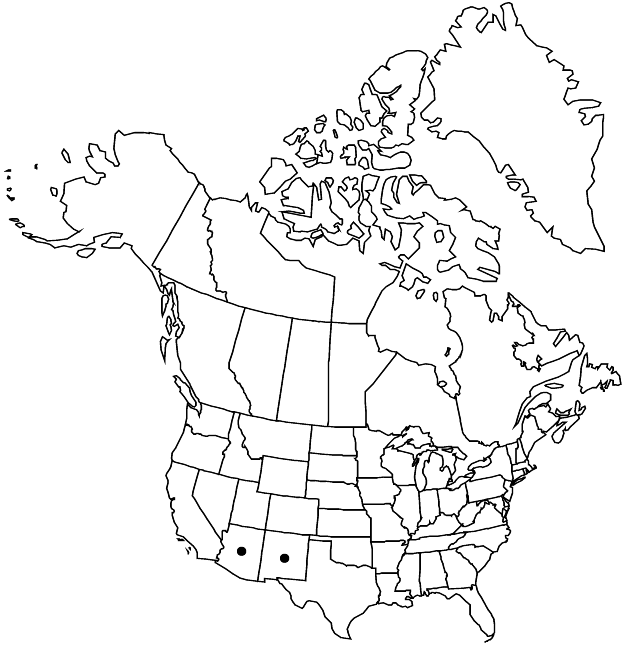Difference between revisions of "Eriogonum capillare"
Bull. Torrey Bot. Club 25: 51. 1898.
FNA>Volume Importer |
FNA>Volume Importer |
||
| Line 48: | Line 48: | ||
|publication year=1898 | |publication year=1898 | ||
|special status= | |special status= | ||
| − | |source xml=https://jpend@bitbucket.org/aafc-mbb/fna-data-curation.git/src/ | + | |source xml=https://jpend@bitbucket.org/aafc-mbb/fna-data-curation.git/src/f6b125a955440c0872999024f038d74684f65921/coarse_grained_fna_xml/V5/V5_803.xml |
|subfamily=Polygonaceae subfam. Eriogonoideae | |subfamily=Polygonaceae subfam. Eriogonoideae | ||
|genus=Eriogonum | |genus=Eriogonum | ||
Revision as of 20:10, 24 September 2019
Herbs, erect, annual, (1–)2–4 dm, glabrous. Stems: caudex absent; aerial flowering stems erect, solid, not fistulose, 0.5–1.5 dm, glabrous. Leaves basal; petiole 1–3 cm, sparsely villous; blade obovate to round, 1–3 × 1–3 cm, sparsely villous to hirsute and greenish to grayish on both surfaces, margins plane. Inflorescences cymose, usually dense, 10–30 × 5–35 cm; branches not fistulose, glabrous; bracts 3, scalelike, 0.5–3 × 0.5–2.5 mm. Peduncles erect, straight, slender, 1–3 cm, glabrous. Involucres campanulate, 1–1.5 × 1–1.5 mm, glabrous; teeth 5, erect, 0.2–0.4 mm. Flowers 1–1.6 mm; perianth white with greenish or reddish midribs, becoming pink to rose, glabrous; tepals dimorphic, those of outer whorl pandurate with swollen, auriculate bases, those of inner whorl oblanceolate; stamens included to exserted, 0.8–1.2 mm; filaments glabrous. Achenes shiny brown to black, 3-gonous, 1.3–1.6 mm, glabrous.
Phenology: Flowering Sep–Oct.
Habitat: Sandy flats and washes, saltbush, greasewood, and mesquite communities
Elevation: 500-1500 m
Discussion
Eriogonum capillare is known from southeastern Arizona (Gila, Graham, Greenlee, and Pima counties) and extreme southwestern New Mexico, where it is rare in northwestern Hidalgo County.
Selected References
None.
